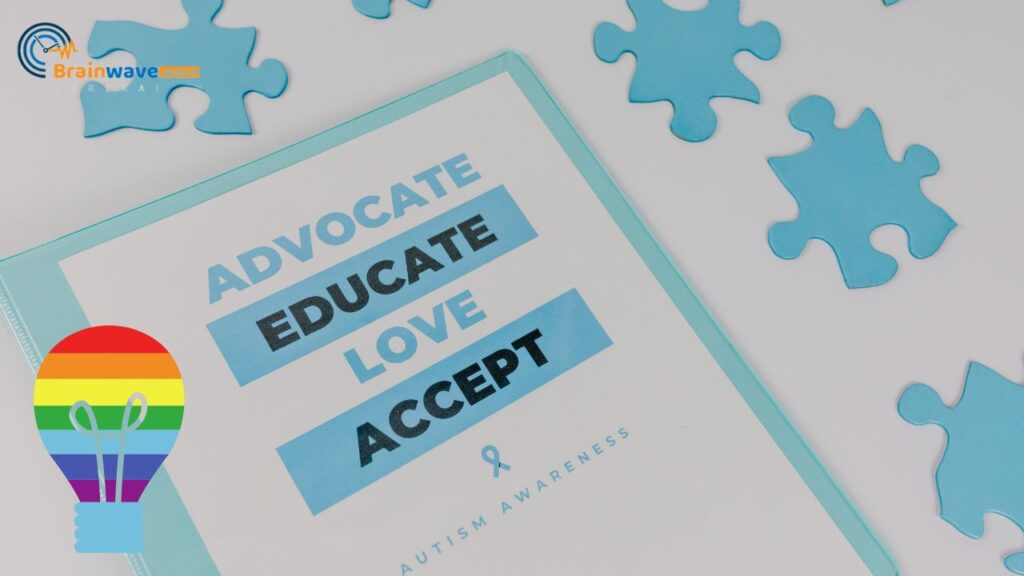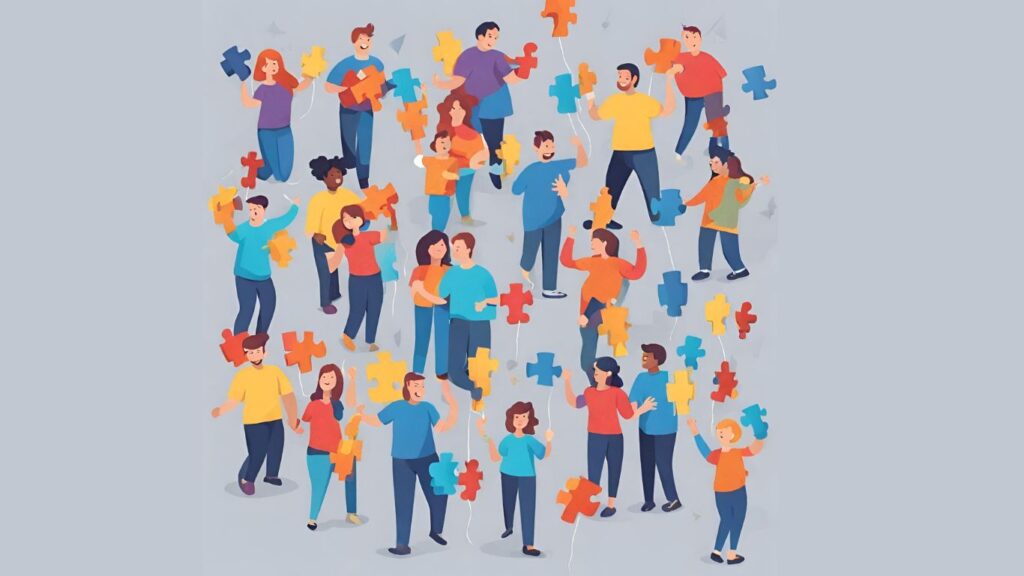Raising awareness for Autism Acceptance requires a multi-faceted approach that involves educational programs, social media campaigns, and community events. Here are some effective strategies for promoting Autism Acceptance:
Educational Programs and Workshops
Educational programs and workshops that focus on Autism Acceptance can be an effective way of promoting awareness. These programs can be organized by schools, community centers, or non-profit organizations. They can include presentations by experts in the field, interactive activities, and discussions on how to promote inclusion and acceptance of individuals with Autism Spectrum Disorder (ASD). Workshops can also provide a platform for parents, educators, and caregivers to share their experiences and learn from each other.
Social Media Campaigns
Social media campaigns can be a powerful tool for raising awareness of Autism Acceptance. Platforms like Facebook, Twitter, and Instagram can be used to share information about ASD, promote events, and encourage people to get involved. Hashtags like #AutismAcceptance and #DifferentNotLess can be used to reach a wider audience and start conversations about acceptance and inclusion. Social media campaigns can also be used to share personal stories and experiences of individuals with ASD and their families.
Community Events and Participation
Community events can be a great way of promoting Autism Acceptance and bringing people together. Events like walks runs, and fundraising events can be organized to raise awareness and funds for organizations that support individuals with ASD. These events can also provide an opportunity for individuals with ASD and their families to connect with others who share similar experiences. Community participation in events like these can help to foster a sense of belonging and promote acceptance of individuals with ASD.
Building Support Networks
Individuals with autism and their families often face unique challenges that can be difficult to navigate alone. Building support networks is an essential step in promoting autism acceptance and creating a more inclusive society.
Creating Support Groups
One effective way to build support networks is by creating support groups for individuals with autism and their families. These groups can provide a safe and supportive environment for individuals to share their experiences, connect with others, and learn from one another.
Support groups can take many forms, such as online forums, in-person meetings, or social events. To create a successful support group, it is important to consider the needs and preferences of the individuals involved. This may include factors such as location, accessibility, and the availability of childcare or other support services.
Collaborating with Local Organizations
Another way to build support networks is by collaborating with local organizations that support individuals with autism and their families. This may include non-profit organizations, advocacy groups, or healthcare providers.
By working together, these organizations can provide a more comprehensive range of services and resources to individuals with autism and their families. This may include educational workshops, social events, or access to specialized healthcare services.
Advocacy and Legal Framework
Advocacy for autism rights involves promoting awareness, acceptance, and inclusion of individuals with Autism Spectrum Disorder (ASD) in society. It also involves empowering those on the spectrum and supporting their rights. Legal advocacy for autism is a critical aspect of ensuring that individuals with autism are treated fairly and with respect. It involves advocating for the rights of individuals with autism, whether it be in the education system, the workplace, or the community.
Promoting Inclusive Policies
Promoting inclusive policies is an important aspect of advocacy for autism rights. Inclusive policies promote the integration of individuals with autism into society and provide them with equal access to opportunities. Some examples of inclusive policies include:
- Providing reasonable accommodations in the workplace and educational settings
- Encouraging inclusive recreation and leisure activities
- Promoting accessible public transportation
- Providing support services to individuals with autism and their families
Lobbying for Legislative Changes
Lobbying for legislative changes is another important aspect of advocacy for autism rights. Legislative changes can help to ensure that individuals with autism are protected by law and have equal access to opportunities. Some examples of legislative changes that can benefit individuals with autism include:
- The Americans with Disabilities Act (ADA), prohibits discrimination against individuals with disabilities in employment, transportation, and public accommodations
- The Individuals with Disabilities Education Act (IDEA), provides funding and support for special education services for children with disabilities, including autism
- The Autism Collaboration, Accountability, Research, Education, and Support (CARES) Act, provides funding for research, education, and support services for individuals with autism and their families.
Advocacy and legal frameworks are important components in raising awareness of autism acceptance. By promoting inclusive policies and lobbying for legislative changes, individuals with autism can be better integrated into society and provided with equal access to opportunities.
Resources and Further Reading
Here are some additional resources for those who want to learn more about autism acceptance:
- Autism Speaks – This organization is dedicated to promoting solutions for the needs of individuals with autism and their families. They provide a variety of resources, including toolkits, webinars, and support groups. Visit autismspeaks.org to learn more.
- The Autism Society – The Autism Society provides information, advocacy, and support for those affected by autism. They offer a variety of resources, including a national conference, webinars, and a free online resource library. Visit autism-society.org to learn more.
- The National Institute of Mental Health (NIMH) – NIMH provides information and research on mental health, including autism. They offer a variety of resources, including fact sheets, research studies, and clinical trials. Visit nimh.nih.gov to learn more.
- Autistic Self Advocacy Network (ASAN) – ASAN is a nonprofit organization run by and for autistic people. They provide information, support, and advocacy for autistic people and their families. Visit autisticadvocacy.org to learn more.
- The Thinking Person’s Guide to Autism – This website provides a variety of resources for those who want to learn more about autism from a neurodiversity perspective. They offer articles, book reviews, and a directory of services. Visit thinkingautismguide.com to learn more.
By using these resources, individuals can learn more about autism acceptance and how to promote understanding and inclusion for those affected by autism.







